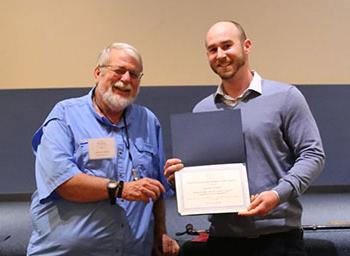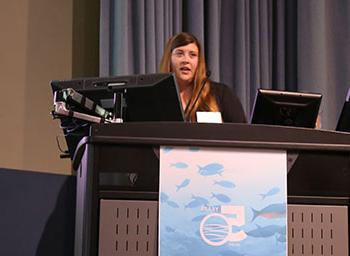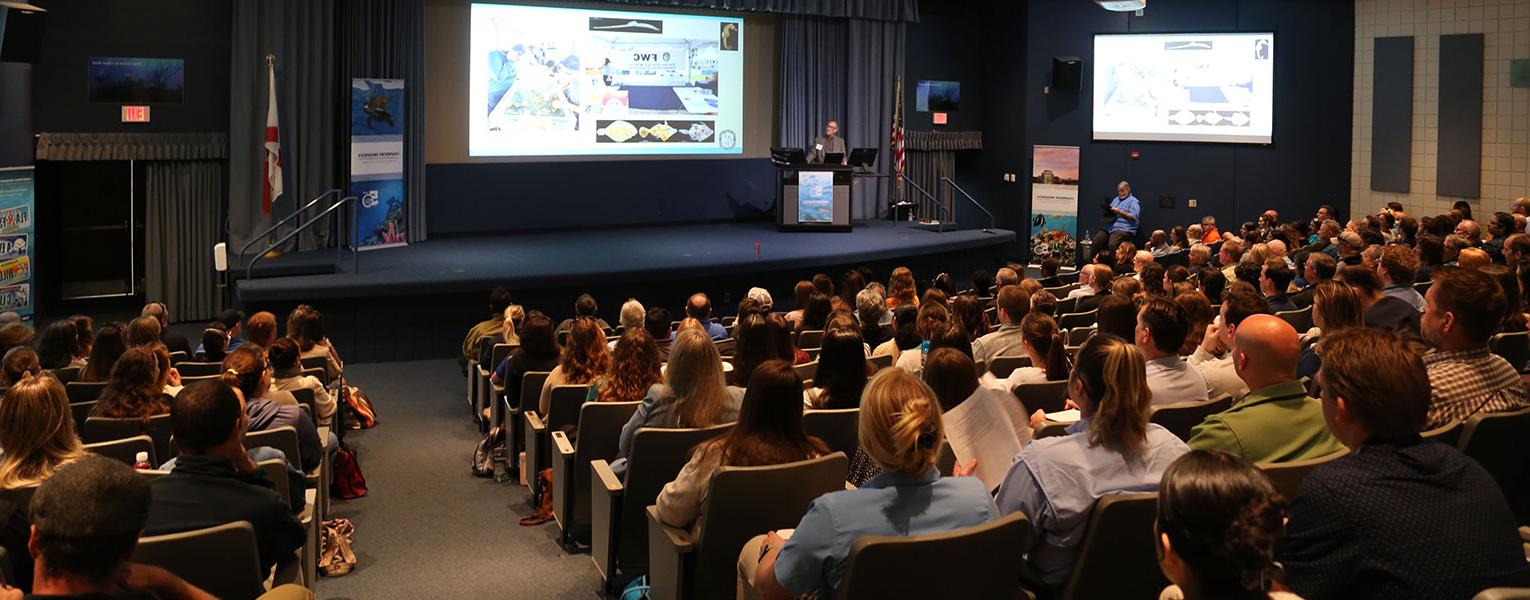3/14/2024
Indian River Lagoon Symposium
Florida Atlantic Harbor Branch Hosted Annual Forum for Lagoon Research and Conservation Efforts
In February, more than 700 scientists, environmental managers, students and members of the public attended the annual Indian River Lagoon Symposium at Florida Atlantic University’s Harbor Branch Oceanographic Institute in Fort Pierce. The symposium is a forum for current knowledge, research and monitoring in the Indian River Lagoon (IRL) and its management. This year’s theme was “IRL Fish." A total of 118 presentations were made, including a keynote address, 10-minute and rapid-fire 3-minute talks, and poster sessions.
The IRL is home to a wide variety of fish species, ranging from small forage fish to large predators. Fishing attracts anglers and tourists, contributing to the local economy, and is a cultural tradition for many communities around the lagoon. The health of the IRL fish populations can serve as an indicator of the overall health of the lagoon. Changes in these populations can signal environmental issues such as pollution, habitat degradation and climate change.
Richard Paperno, Ph.D., who retired in 2024 after a long career as a research administrator of Florida Fish and Wildlife Research Institute’s Indian River Field Laboratory in Melbourne, was this year’s keynote speaker. He spoke on the State of Florida’s long-term fisheries-independent monitoring program that has been actively monitoring fish communities in the IRL since 1990. During that time, there have been many changes in the fish communities and their associated habitats as a result of manmade (e.g., hardened shorelines, sewage spills) and natural (e.g., hurricanes, algal blooms, winter freezes) disturbances.
Despite all the changes in the system, Paperno noted positive developments. IRL monitoring has indicated that fish communities can be extremely resilient to disturbances. This resilience makes them a good tool for investigating how restoration efforts may affect future communities. Fish habitat use helps guide restoration and can function as a metric for gauging restoration success.
Other talks addressed key developments on the theme of “IRL Fish," including:
- the importance of scientists directly interacting with fishers, as they know the lagoon well and their knowledge and fisheries landings are valid indicators of IRL health
- the increased abundance of two iconic fish, the Goliath grouper and sawfish
- and the use of technology to better track the movement of fish in the IRL and nearby coastal waters.
The Indian River Lagoon Symposium has been held annually since 2012. Programs and abstracts for this and previous years can be found at: http://www.indianriverlagoon.org/symposium.html.
If you would like more information, please contact us at dorcommunications@e21system.com.
At the recent Indian River Lagoon Symposium, two Florida Atlantic students received Outstanding Student Presentations Awards.


